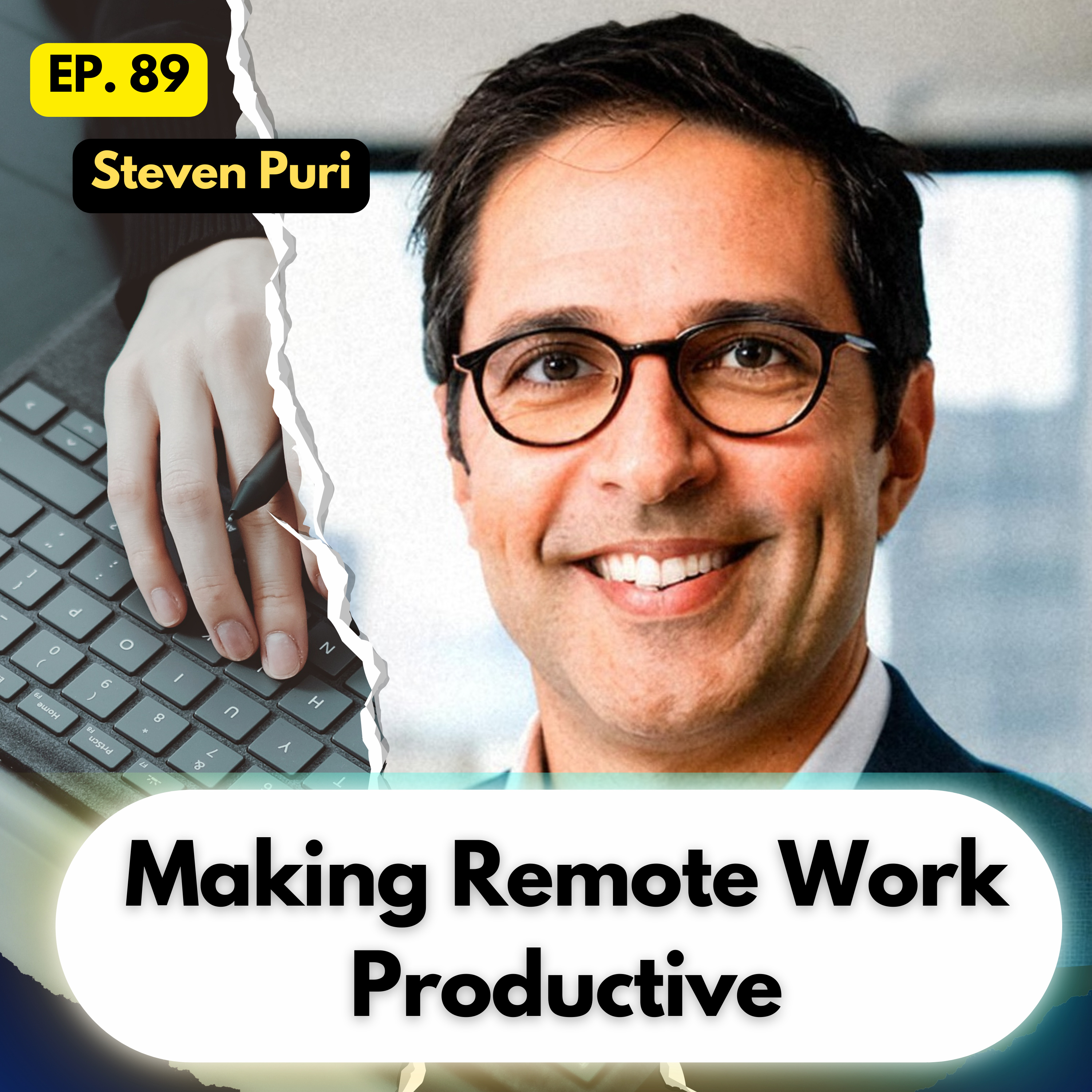
Managers often have to balance the expectations of executives with the needs of their employees. Remote work magnifies this challenge. Making it vital to adopt strategies that keep teams productive. In a world where remote work has become normal. Challenges from other organizations make understanding how to leverage remote work crucial. In episode 89 of The Manager's Mic Podcast, Steven Puri, founder of The Sukha Company. Provides an application that helps professionals focus on achieving deep work to increase productivity. Steven is a seasoned executive in the film and tech industries. Together, we discuss remote work.
Steven Puri shares his perspective from Hollywood. Having worked on major film franchises, including Star Trek, Die Hard, and Transformers. He explains how the film industry has adopted a hybrid model. Incorporating remote work into their creative process. His experience has equipped him with valuable insights into leading remote teams.
The Power of Flow States
A key insight from the conversation is the importance of flow states. Steven emphasizes the need for uninterrupted time. Allowing individuals to enter a state of deep work. Deep work takes around 15 minutes to achieve. Fostering creativity and innovation parallels this concept with the practices of high-performing athletes and artists. Something as simple as scheduling two daily 90-minute focus blocks can help remote employees enter a state of flow. This rhythm often proves more effective than spreading tasks across eight fragmented hours.
Company Culture
Steven emphasizes the importance of establishing a strong company culture and hiring individuals who align with the organization's mission and values. He stresses that trust and empowerment are essential for remote teams to succeed. Leaders can unlock their teams' full potential by fostering an environment that encourages flow states and deep work.
Habits like publicly acknowledging small wins, sharing team updates. Being transparent in decision-making helps reinforce culture even when employees rarely meet face-to-face.
History Related to Remote Work
The first video conference call cost $250,000 in 1982. The resources needed to make remote work a reality are astronomical. Engineers scratched their heads trepidly to make it a reality in the 1930s. One of those engineers said, "Remote is not going to work."
Following the COVID-19 pandemic, remote work technology is here to stay:
- Impact on Earth includes a 54% reduction in carbon emissions when working remotely for five days.
- The average annual cost of savings for one remote worker is $19,000.
Ironically, we have executives saying, "Remote work is not going to work." The only difference between them is that one was on the path toward innovation. For more information, watch a video on YouTube titled 'Why Remote Work Works'. Although it did not reach the desired number of views, the description includes many credible sources.
A Four-Step Plan to Better Manage Remote Workers
This plan is designed to be simple and easy to implement. However, for it to be effective, the manager and direct report must be aligned. Schedule an initial meeting to discuss this. A weekly one-on-one should look like this:
- The camera on both computers stays on to maintain transparency.
- Cap the meeting time at 30 minutes.
- Review the status of projects assigned.
- The direct report communicates three wins, two areas of opportunity, and one idea to help the company.
- The purpose of introducing an idea. It is to help integrate the manager and direct report into the company's culture.
This process occurred when reporting to a reputable director. Our professional relationship led to the creation of this system. As a direct report, the employee is empowered; however, adverse consequences may occur if the guidance is not followed through.
Conclusion
Conversations like the one with Steven Puri. Remind us that remote work is more than a policy; it is an opportunity to reimagine leadership for the digital age. As remote work continues to shape the future, embracing lessons from the film industry provides valuable insights. Managers can drive innovation. Success in the digital age will happen. Prioritizing flow states, cultivating a strong culture, and empowering teams is a reality that can be leveraged through remote work. Maintaining remote work is challenging, much like other situations, such as giving incorrect feedback, crushing someone's confidence, and making a decision that seems logical but proves to be completely misguided. Not every position will allow for remote work. Nevertheless, the opportunity to work remotely, where it makes sense, is crucial, as the data show that remote work does work.

















